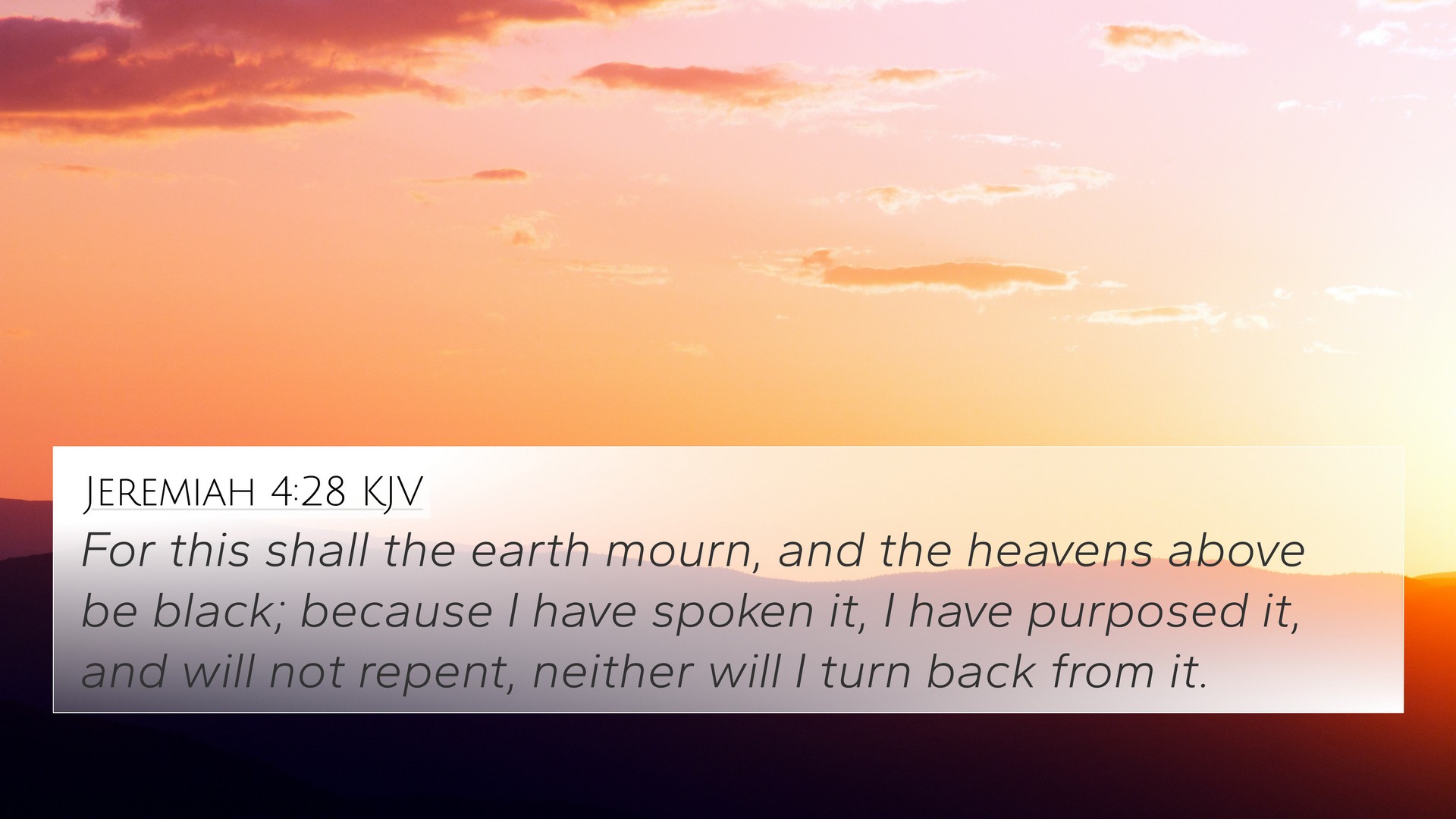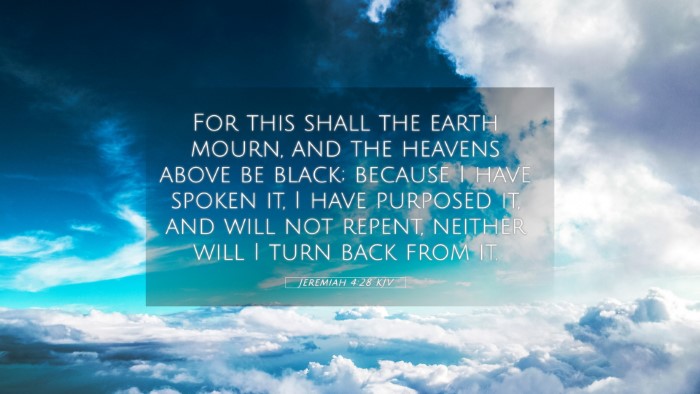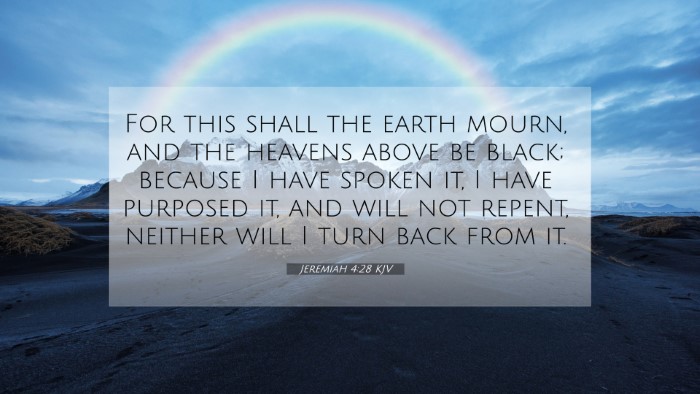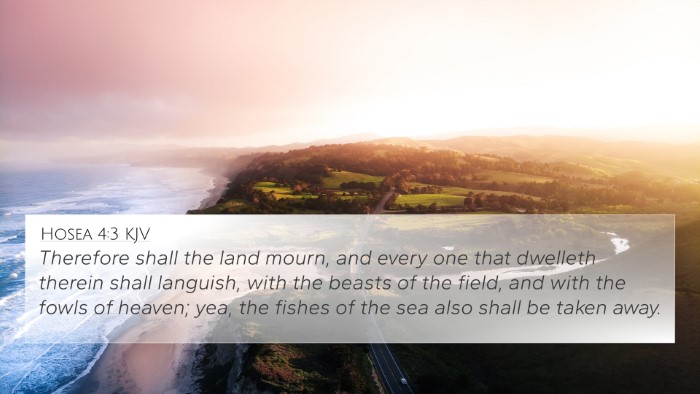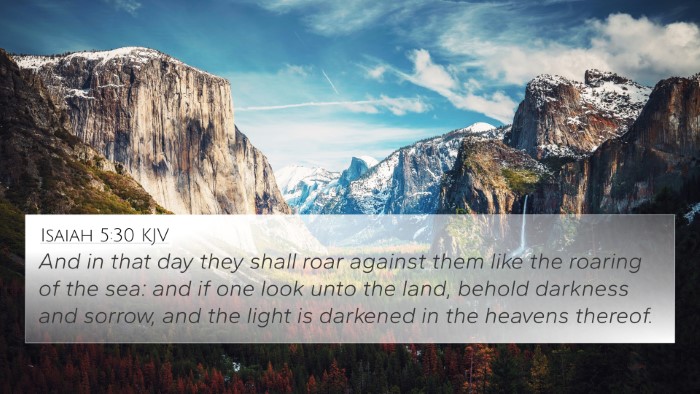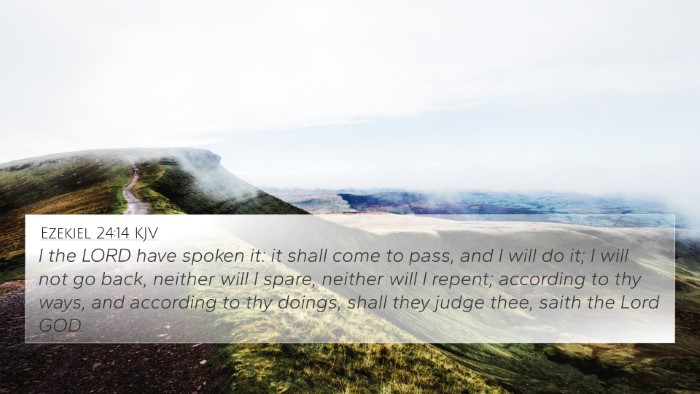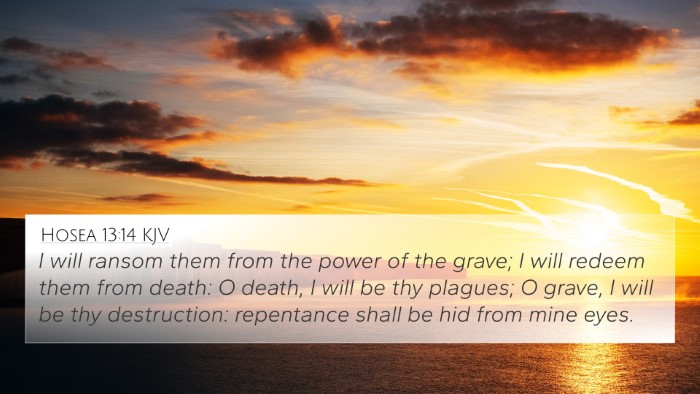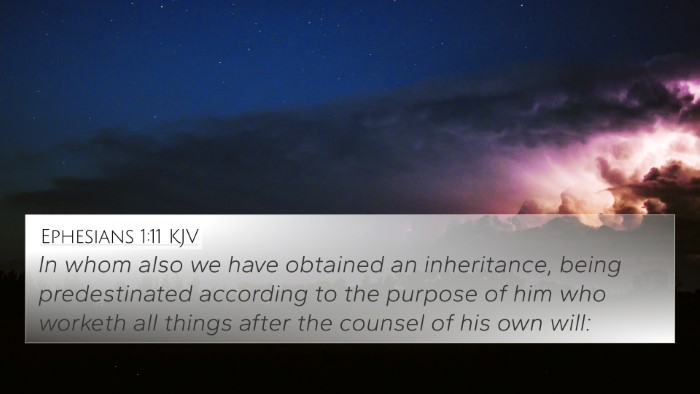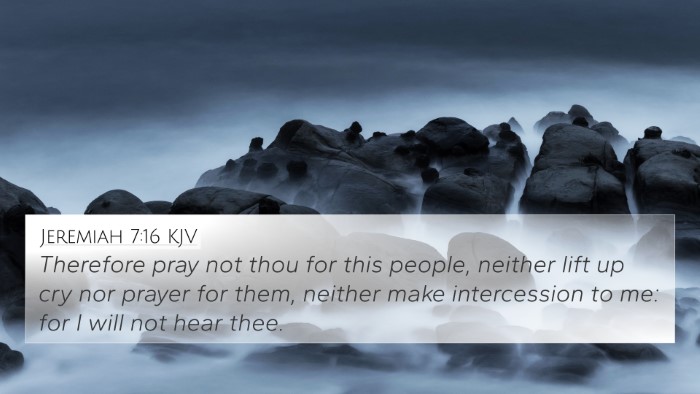Understanding Jeremiah 4:28
Jeremiah 4:28 reads, "For this shall the earth mourn, and the heavens above be black: because I have spoken it, I have purposed it, and will not repent, neither will I turn back from it." This verse reflects the profound emotional and spiritual turmoil resulting from God's judgment on His people for their transgressions.
Summary of Insights from Public Domain Commentaries
This verse is a part of the prophetic messages delivered by Jeremiah, highlighting themes of divine judgment and the seriousness of turning away from God's commands.
Matthew Henry's Perspective
Matthew Henry interprets this verse as a declaration of God's unchanging purpose regarding judgment. He emphasizes that God’s decisions are driven by His holiness and justice, making it clear that the judgment pronounced upon the land is inevitable. This reflects God's firmness, illustrating that the signs in nature accompany His displeasure, as the heavens and the earth respond to the moral state of humanity.
Albert Barnes' Commentary
Albert Barnes notes that this verse depicts the deep sorrow of creation due to human sinfulness. He highlights the imagery of a mournful earth and darkened heavens as manifestations of divine wrath. Barnes illustrates that God's purpose is unwavering and that the refusal to repent leads to dire consequences, thereby serving as a warning for those who stray from His path.
Adam Clarke's Interpretation
Adam Clarke offers insights into the emotional weight of the text, pointing out that the mourning of the earth signifies the seriousness of Israel's sins. Clarke stresses that God's purposes are established and will not change; hence, the calamities foretold are certain unless there is genuine repentance. He also highlights the connection of this judgment with the promises of restoration if true repentance occurs.
Cross-References for Deeper Understanding
To better understand Jeremiah 4:28, consider these related Bible verses:
- Isaiah 24:4-5 - Illustrates a similar theme of the earth mourning for the sins of humanity.
- Ezekiel 18:30 - Calls the people to repentance, emphasizing that turning away from sin is essential.
- Lamentations 3:22-23 - Contrasts God's judgments with His mercy and steadfast love.
- Hosea 4:3 - Speaks about creation suffering due to the people's unfaithfulness.
- Matthew 24:29 - Echoes cosmic disturbances in the context of prophetic fulfillment.
- Revelation 6:12-14 - Describes cataclysmic events symbolizing God's judgment.
- Micah 1:10-16 - Involves imagery of mourning and divine judgment, similar to Jeremiah’s message.
- Joel 2:30-31 - Indicates signs in the heavens as precursors to God's interventions.
Thematic Connections
Jeremiah 4:28 serves as a poignant reminder of the consequences of sin and the reality of divine judgment:
- Divine Sovereignty: God’s determination to enact what He has purposed.
- Human Responsibility: The importance of responding to God’s call for repentance.
- Nature’s Response: The reflection of spiritual and moral states in the physical world.
- Judgment and Hope: While the verse emphasizes judgment, it also creates an avenue for hope through repentance, as seen in other scriptures.
Bible Cross-Referencing Resources
Exploring links between Bible verses enhances understanding and spiritual growth. Here are some tools and methods to aid in cross-referencing:
- Bible Concordance: A valuable resource that lists words and topics alongside relevant verses.
- Bible Cross-Reference Guide: Guides that help identify related scriptures based on themes and topics.
- Cross-Reference Bible Study: A methodical approach to scripture study that emphasizes understanding connections.
- How to Use Bible Cross-References: Learning to find and utilize cross-references for deepening one’s study.
- Comprehensive Bible Cross-Reference Materials: Collectively utilizing various reference tools for a well-rounded study.
Conclusion
Jeremiah 4:28 is a grim reminder of the gravity of sin and the consequences posed by divine judgment. Through the study of this verse and its interconnected scriptures, believers are encouraged to reflect on their lives, repent, and seek God's grace, ensuring that they remain in alignment with His will.
Explore Further: Delve into themes of divine justice, judgment, and mercy echoed throughout the scriptures to enrich your understanding and faith.
